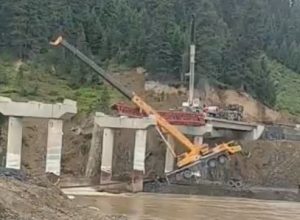Do LinkedIn Posts Encourage Poor Investigations?
I find a lot of good information on LinkedIn. However, I’ve noticed a disturbing trend in the types of posts that have been appearing in my feed.
LinkedIn tailors my feeds toward the types of things they think I’m interested in, and in general, they do a pretty good job. Therefore, they are throwing a lot of accident videos my way. Some of these have the opportunity to show some serious issues. However, it is the comments that are disappointing.
Here is an example of a crane accident saw today. LINK
There is merit in watching the video. However, the premise of the post is for everyone to watch the video and list the “root causes” and the “reasons, in your opinion.” These types of posts just encourage poor incident investigations!
It is easy to watch a video and list the mistakes that were made. In this video, people listed their opinions on what went wrong:
“Cost cutting”
“Crane overloaded”
“Poor training”
“No lift plan”
“Poor risk assessment”
“Inadequate MoC”
“Poor planning”
But are any of these correct? It’s possible NONE of these problems were actually present. For example, what if there had been a mechanical failure on one of the cranes? I can think of half a dozen possible scenarios that would involve none of the problems listed above. Most of the listed issues are just easy ways to blame someone. That’s just lazy. In these posts, you can watch people preach about their favorite errors and point out how the operators / management / supervisors were at fault, and how “I wouldn’t have let this happen.” And yet, these types of problems happen every day, to good people with good intentions.
I do think there are some really good outcomes from posts like this. The first step in any good root cause analysis is to gather unbiased information. Instead of encouraging people to point out problems, opinions, and solutions, why don’t we change the original question to, “If you were going to perform this investigation, what questions would you be asking?” I think this is a much more useful type of post. It encourages the viewers to engage their critical thinking skills and figure out what types of problems might have contributed to the issue. Are there Management System issues? Mechanical failure or maintenance problems? Supervision issues? Human engineering deficiencies which confused the operators?
The first step in a good root cause analysis is to gather the right information. By changing the tone on these types of posts, we might be able to work in the direction of a good root cause analysis, instead of just assuming everyone is stupid.




